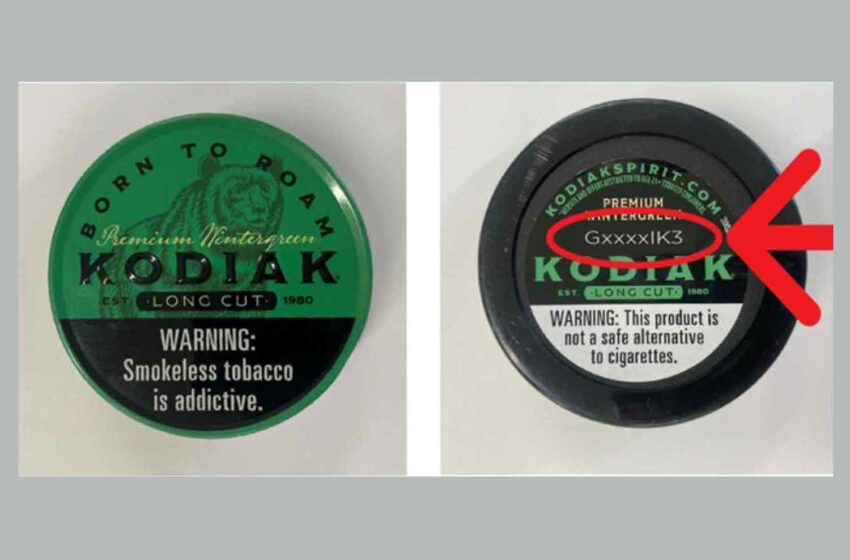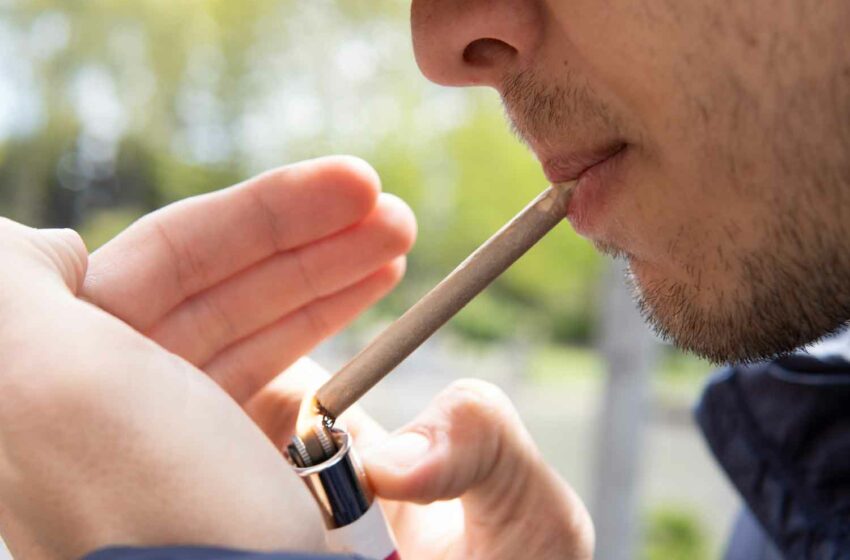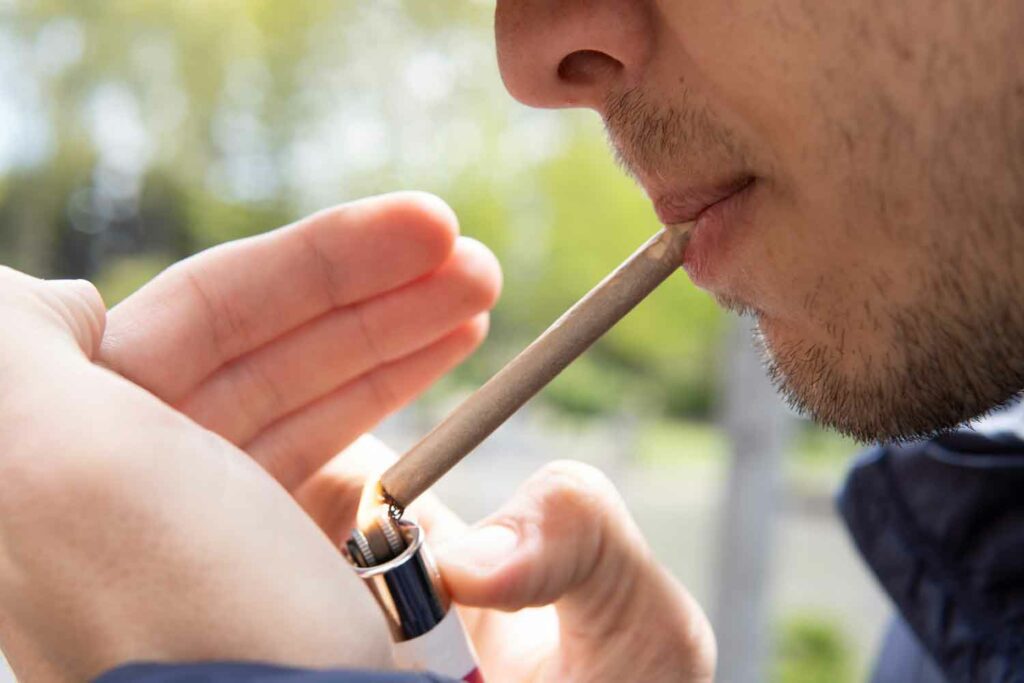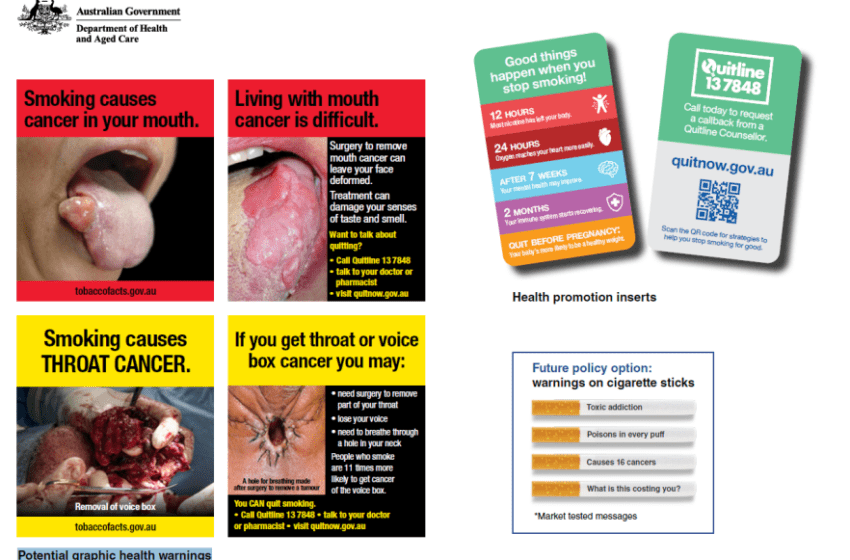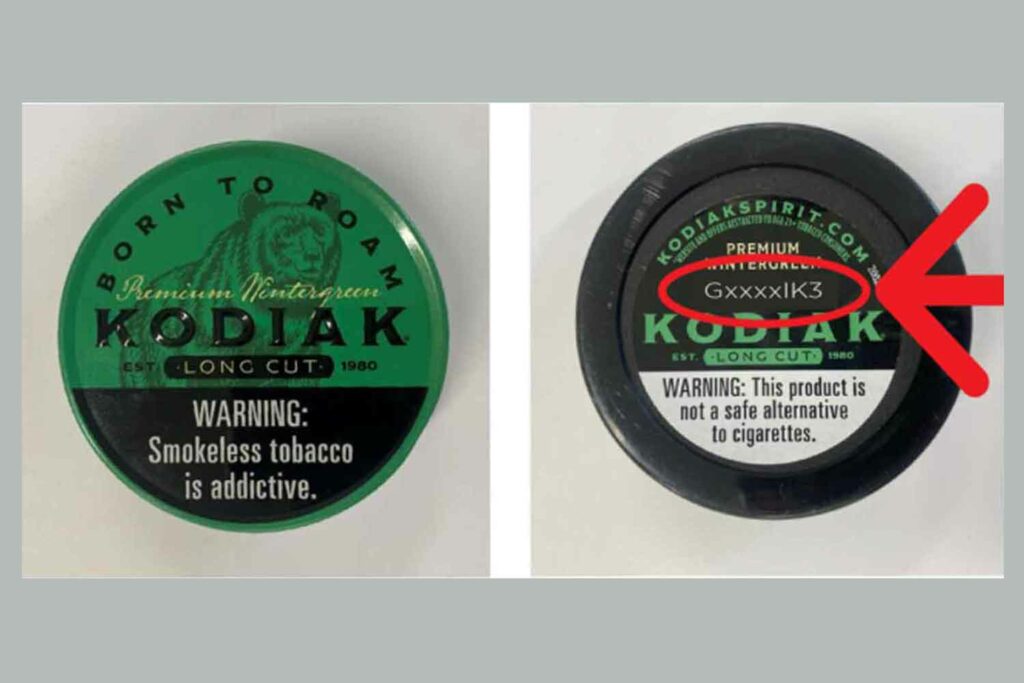
American Snuff Co. (ASC) is voluntarily recalling certain lots of Kodiak Premium Wintergreen Longcut Tobacco manufactured at the company’s facility in Clarksville, Tennessee, and distributed in Alabama, Florida, Georgia, Iowa, Illinois, Indiana, Kentucky, Michigan, Minnesota, North Carolina, New York, Ohio, Pennsylvania, South Carolina, Tennessee, Virginia, Wisconsin, and West Virginia. ASC has notified the U.S. Food and Drug Administration of the voluntary recall and is working with the agency on this matter.
According to a announcement on the company’s website, ASC initiated the recall after having identified the potential for certain lots of the product to contain foreign metal objects that may or may not be visible to the consumer. The recall was as the result of identifying an issue with manufacturing equipment during routine inspection that caused metal-to-metal abrasion; this abrasion could have caused metal shavings to come into contact with tobacco during the manufacturing process. To date, there have been no products identified as containing these foreign objects, no consumer complaints, or reports of consumer injury received.
None of ASC’s other products are affected, including its other styles of Kodiak, Grizzly, Hawken, and Cougar smokeless tobacco products, and all of its loose leaf, twist, dry snuff and plug products.
ASC has instructed wholesalers and retailers to segregate the recalled Kodiak Premium Wintergreen Longcut Tobacco from their inventories. ASC’s sales representatives are assisting wholesalers and retailers in returning the product.
The affected products are labeled with the codes GxxxxIK3, GxxBxJK3, GxxAxJK3 and GxxCxJK3. ASC advises consumers in procession of such cans to refrain from opening the product and to contact the company for a refund.

